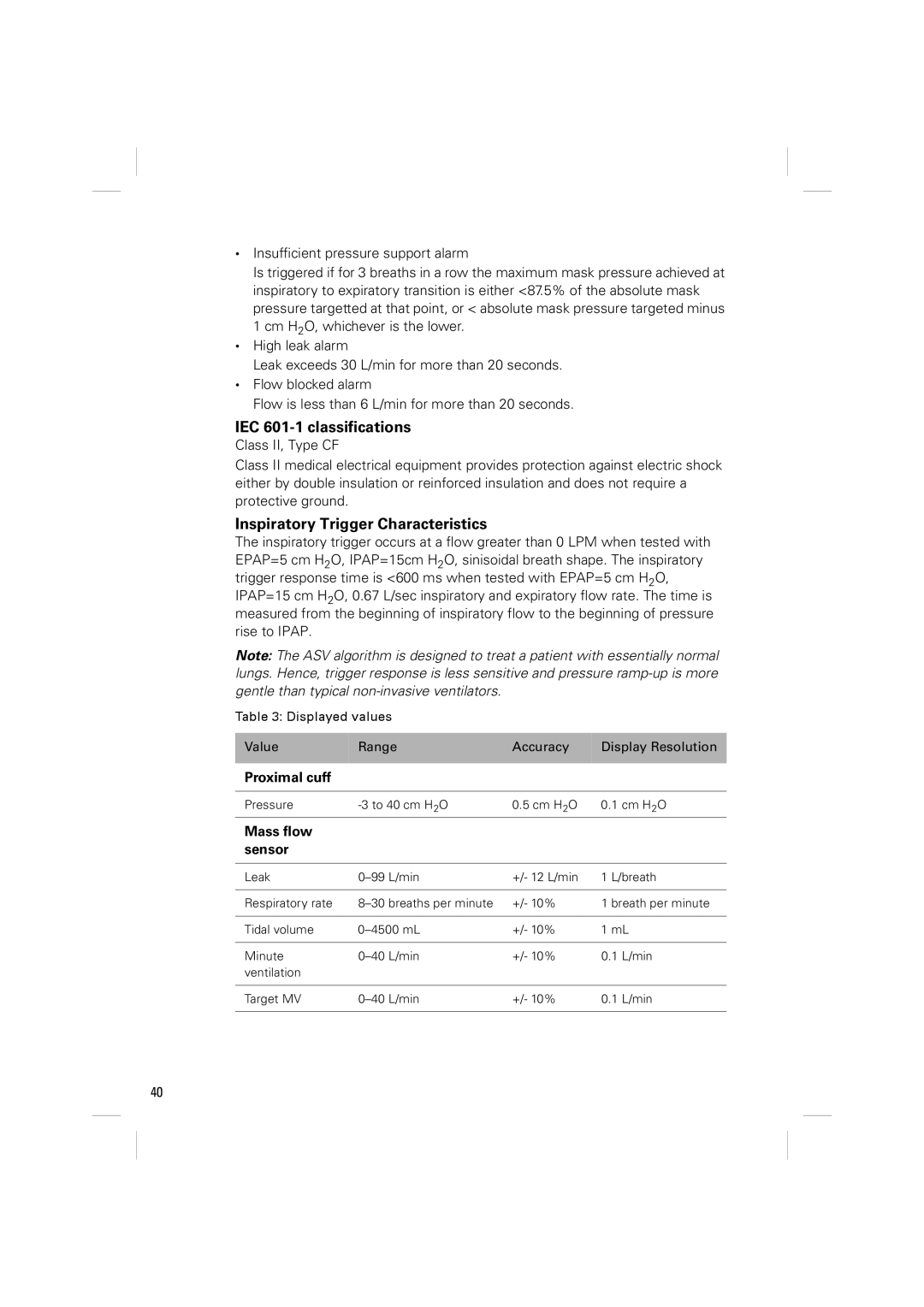
•Insufficient pressure support alarm
Is triggered if for 3 breaths in a row the maximum mask pressure achieved at inspiratory to expiratory transition is either <87.5% of the absolute mask pressure targetted at that point, or < absolute mask pressure targeted minus 1 cm H2O, whichever is the lower.
•High leak alarm
Leak exceeds 30 L/min for more than 20 seconds.
•Flow blocked alarm
Flow is less than 6 L/min for more than 20 seconds.
IEC 601-1 classifications
Class II, Type CF
Class II medical electrical equipment provides protection against electric shock either by double insulation or reinforced insulation and does not require a protective ground.
Inspiratory Trigger Characteristics
The inspiratory trigger occurs at a flow greater than 0 LPM when tested with EPAP=5 cm H2O, IPAP=15cm H2O, sinisoidal breath shape. The inspiratory trigger response time is <600 ms when tested with EPAP=5 cm H2O, IPAP=15 cm H2O, 0.67 L/sec inspiratory and expiratory flow rate. The time is measured from the beginning of inspiratory flow to the beginning of pressure rise to IPAP.
Note: The ASV algorithm is designed to treat a patient with essentially normal lungs. Hence, trigger response is less sensitive and pressure
Table 3: Displayed values
ValueRangeAccuracy Display Resolution
Proximal cuff
Pressure
Mass flow sensor
Leak | +/- 12 L/min | 1 L/breath | |
|
|
|
|
Respiratory rate | +/- 10% | 1 breath per minute | |
|
|
|
|
Tidal volume | +/- 10% | 1 mL | |
|
|
|
|
Minute | +/- 10% | 0.1 L/min | |
ventilation |
|
|
|
|
|
|
|
Target MV | +/- 10% | 0.1 L/min | |
|
|
|
|
40
